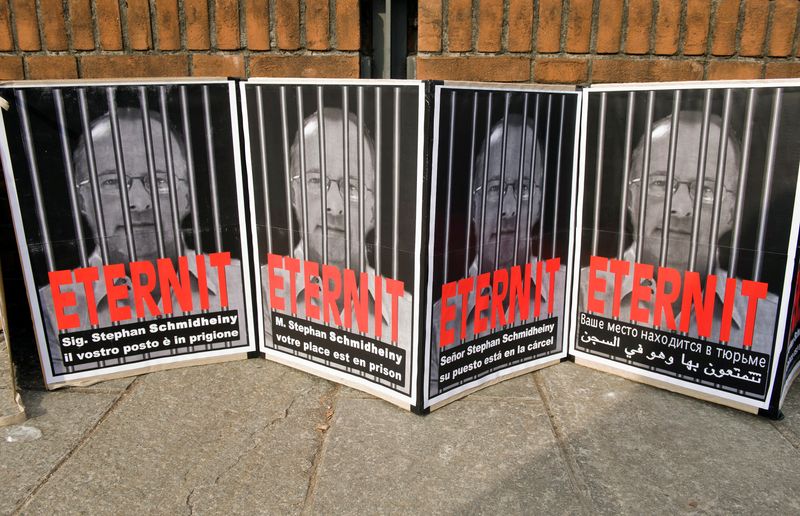Italian court convicts Swiss billionaire in asbestos deaths
2023.06.07 16:34

© Reuters. FILE PHOTO: Posters reading “Stephan Schmidheiny your place is in prison” are displayed outside the courthouse during a trial against the Swiss firm Eternit’s Italian plant in Turin February 13, 2012. The company closed its Italian operations in 1986. REU
ROME (Reuters) – An Italian court on Wednesday sentenced a Swiss billionaire to 12 years in jail after convicting him on charges of aggravated manslaughter related to the death of hundreds of people from exposure to asbestos.
Judges in the city of Novara issued the verdict after more than seven hours of deliberations, according to multiple Italian media reports, which said prosecutors had asked for life imprisonment.
Stephan Schmidheiny was found guilty of causing the death of 392 people, including more than 60 workers and around 330 residents in the northern town of Casale Monferrato, where he his Eternit firm was based.
Defence lawyer Astolfo Di Amato told the Adnkronos news agency that he would appeal, but said his team was already “very pleased” that the court’s manslaughter verdict meant that his client cannot be considered an “intentional murderer”.
Schmidheiny’s factories had used asbestos in the production of cement between the 1970s and the 1980s. They closed in 1986, but workers and local residents continued to suffer the consequences.
Asbestos became popular from the late 19th century onwards as a way to reinforce cement. But research later revealed that the inhalation of asbestos fibres can cause lung inflammation and cancer. It is now banned in much of the world.
Under Italian law, a first instance conviction like the one issued on Wednesday can be appealed twice before the ruling becomes final. Before then, defendants found guilty are normally not sent to jail.
Schmidheiny saw a previous conviction in a separate trial on environmental disaster charges overturned in 2014 due to the Italian statute of limitations, which also spared him from paying millions of euros in fines and compensations.








